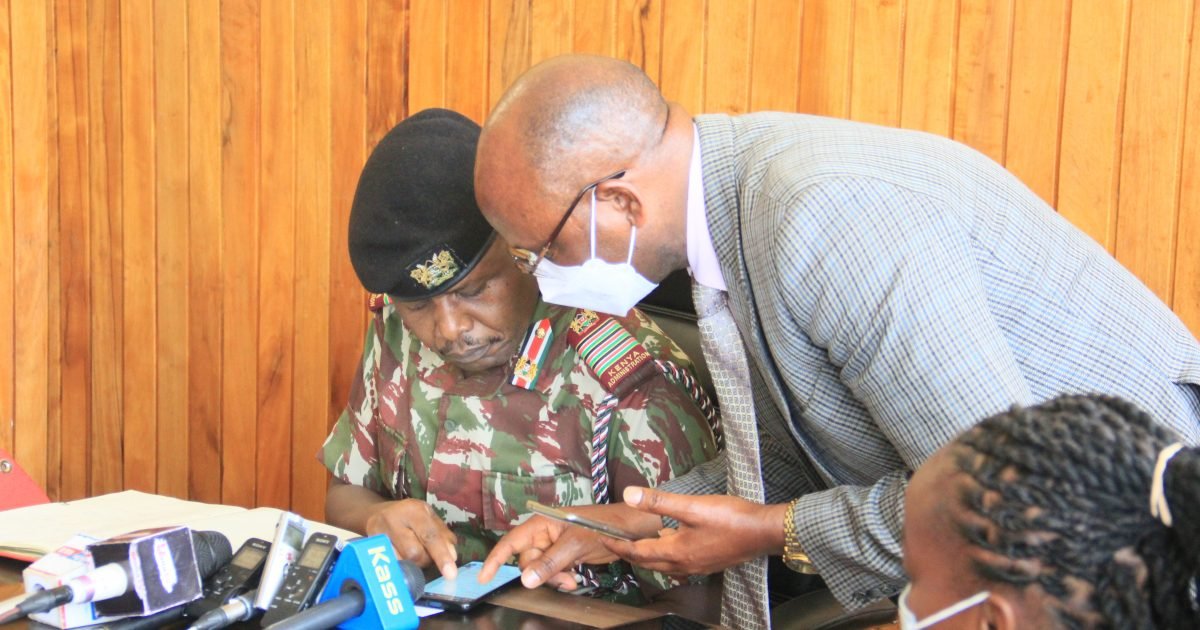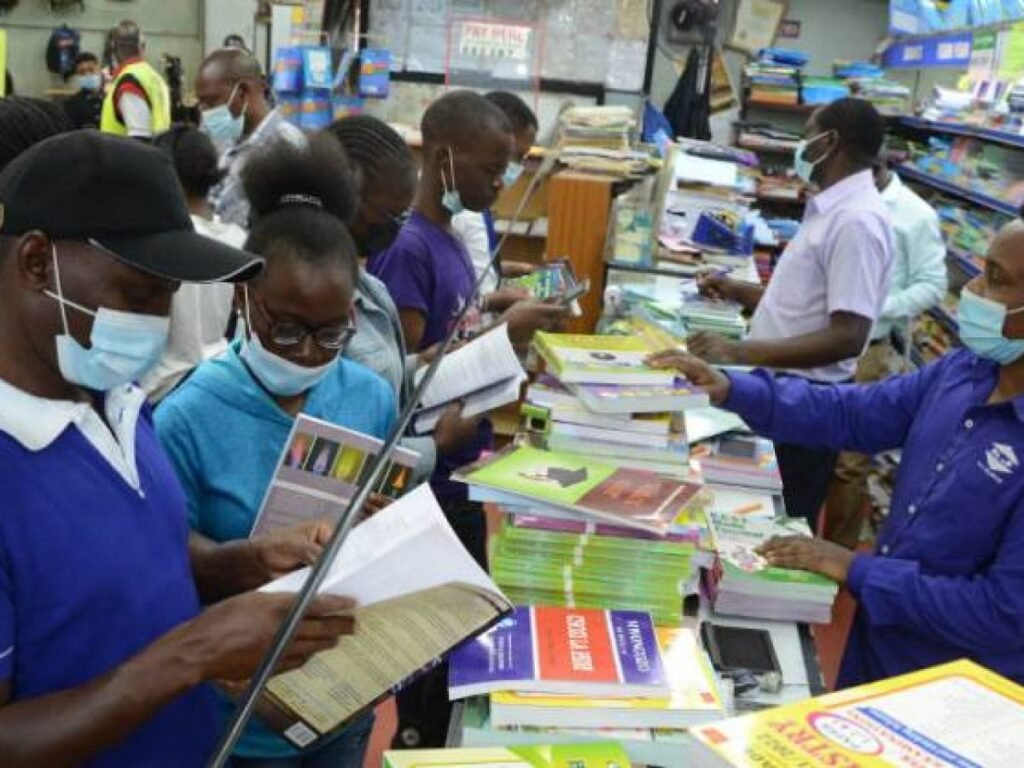General News
Senior Government Officials Given Marching Orders

Five senior government officers from Nakuru North Sub-County have been interdicted in the State’s renewed efforts to curtail sale and consumption of lethal brews.
Rift Valley Regional Commissioner Mr. George Natembeya said Bahati North Deputy County Commissioner Godfrey Mayama, Nakuru North Sub-County Police Commander Bernard Wamugunda and Kiamana Assistant County Commissioner Isaac Ooko had been given marching orders.
“They have been directed to step aside and explain within 21 days why they should not be dismissed from service,” Natembeya added.
The government’s move follows last week’s incident at Hodi hodi village within Kiamaina ward in Bahati Sub-County where ten people died after consuming illicit liquor.
Also sent packing were Officer Commanding Kiamaina Police Station Solomon Wamae, Bahati North Critical Infrastructure Protection Unit (CIPU) Commander Robert Maina, area Chief and his two assistants.
According to Natembeya, the interdictions take effect immediately as replacements to affected officers had already been dispatched to undertake the respective roles.
Addressing the media in his offices in Nakuru, the administrator warned that the County Security Committee had placed on radar officers who were receiving bribes from brewers and peddlers of illicit brews.
“I am putting all the 14 County Security Committees on notice that we will not hesitate to recommend the interdiction of lax and corrupt officers. County Police Commanders are under instruction to take administrative action on officers abetting sale of illicit brew. The government policy is not to transfer underperforming officers, but interdict them, which is the first step before one is fired,” he pointed out.
Natembeya directed County Commissioners and their teams to take charge of their areas. “If lives are lost due to officers’ laxity, they will be sent home,” he affirmed.
The Regional Commissioner singled out Nakuru, Bomet, Kericho, Nandi, Narok, Kajiado, Laikipia, Samburu, Trans Nzoia and Marakwet as notorious havens for brewers and consumers of illicit brews.
He said samples of the 40 litres of unknown substance recovered during a recent crackdown in Hodi hodi village and believed to have been used in the manufacture of illicit brew had been forwarded to the government chemist for analysis.
Superintendent in charge of Bahati Sub-County Hospital Dr Kennedy Owino said preliminary tests point to a possibility of organophosphate poisoning.
“Medics have been managing victim’s conditions by giving them fluids via transfusion and orally,” The Medical Superintendent pointed out.
General News
IMF Criticizes Kenya’s Fuel Subsidy Re-Introduction, Warns of Budget Distortion

The International Monetary Fund (IMF) has criticized Kenya for re-implementing the fuel subsidy scheme, expressing concerns that the lack of funds to pay oil marketers could distort the budget.
Despite a previous commitment by President William Ruto in 2022 not to subsidize pump prices, the government reintroduced the subsidy, preventing petrol and diesel prices from reaching higher levels in October 2023.
The IMF argues that the subsidy was applied without available funds, as the Treasury has yet to pay oil marketers at least Ksh9 billion ($55.6 million) accumulated from the previous year. President Ruto’s decision to reinstate subsidies goes against conditions set by the IMF for accessing loans.
Petrol and diesel prices, which were Ksh217.36 ($1.34) and Ksh205.47 ($1.27) respectively in Nairobi in October 2023, remained lower than the potential Ksh220.43 ($1.36) and Ksh217.11 ($1.34) due to the subsidy. However, the IMF disapproves of the decision, emphasizing that the removal of the subsidy was a key condition for a 38-month budget support scheme.
The IMF criticizes the prolonged process of forming a taskforce and delays in implementing decisions regarding fuel pricing.
The removal of the subsidy in May of the previous year led to record-high pump prices, crossing the Ksh200-mark later in the year due to a combination of subsidy removal and a VAT increase to 16 percent.
Kenya’s administration, faced with rising fuel costs, chose to reinstate the subsidy, prompting the IMF to raise alarms over the lack of budgeted funds and potential distortions in the country’s financial plans.
The ongoing disagreement highlights the challenges and consequences associated with balancing domestic economic policies and meeting international financial commitments
General News
Parents in Meru County Turn to Second-Hand Books Amid Economic Hardships

As the back-to-school rush season unfolds in Meru County, a growing number of parents are making a strategic choice to purchase second-hand books for their children.
This decision stems from the challenging economic conditions that have prompted families to seek ways to cut costs.
Among these parents is Ms. Prisca Gakii, who revealed that opting for second-hand books allows her to save money, which can then be allocated towards essential expenses like school fees.
She highlighted a practical advantage for Form-One students, emphasizing that using older books can protect them from potential theft, as new books often become targets for less scrupulous classmates.

Ms. Gakii pointed out a notable price difference, citing an example of a new Oxford dictionary priced at almost Sh1,900, compared to a used one available for Sh1400.
She justified her preference for the older but more affordable option, emphasizing that they contain the same content.
Janet Wamuyu, a second-hand books trader, shed light on the lucrative nature of their business during the opening of the first term, which coincides with the peak season.
As learners transition to new grades or classes, there is a heightened demand for various books, including dictionaries, Kamusi, and Golden Bells.

Wamuyu explained that this period, especially when Form-One students are joining school, facilitates easy acquisition of books for new stock.
The trading process involves exchanging books for the next grade or class at a lower rate, providing an economical alternative for parents instead of purchasing an entirely new set of books.
She further noted that their source of new stock comes from parents whose children have completed their studies and no longer require the books.
Despite the success during the peak season, Wamuyu acknowledged the challenges faced during other times of the year when only a few revision books are in demand, highlighting the cyclical nature of the business in Meru County.























